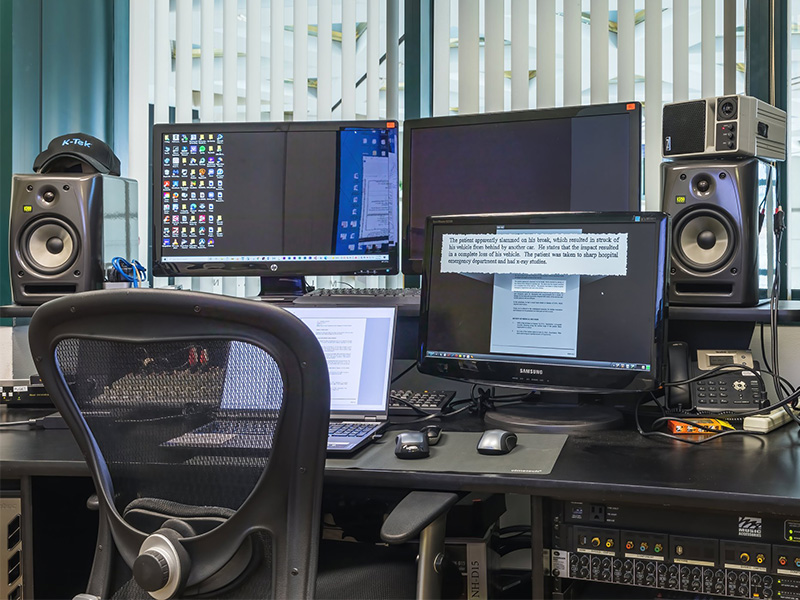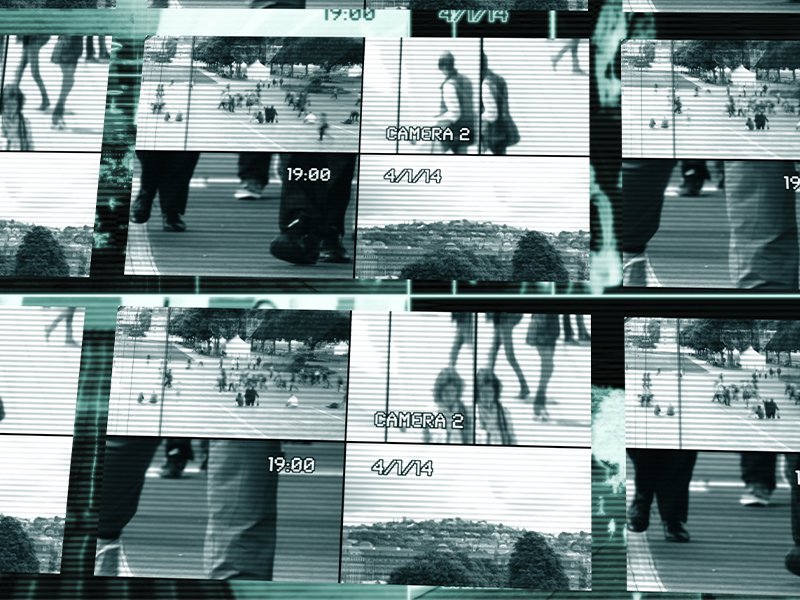As we enter the first quarter of 2022, I am reminded of how much Covid 19 has affected our lives. Many businesses, municipalities and courts have had to make changes. We have been forced to transform our lives at home, school, and work to cope with the environment this pandemic has brought upon us.
Brick and mortar businesses are on the decline. Working in the office is no longer the norm; many are working full-time or intermittently from home and internet cafes while traveling or wherever they can. Students in schools and universities are being taught far beyond the physical classroom, using hybrid and blended learning settings at home or any location where they can access WIFI.
That means more of us have increasingly acclimated to using what technology has to offer in facilitating safer ways to communicate and collaborate during our daily functions at work, home, and school. With accompanying rapid advances in technology these changes are unavoidable. But where is it all heading for litigators and their support services?
At Seacoast, we’ve identified three major trends relating to this change that will have a lasting impact on the way litigation support is provided.
1. Virtual Depositions
Far removed from having a videographer haul equipment into a conference room or office for an in-person proceeding, we find that virtual depositions have proven to be a safe method in taking depositions for the last several years. A growing number of people in the legal industry have become quite accustomed to the ease and flexibility of working remotely and attorneys are no exception. It is unlikely that most professionals will not return to the pre-covid ways of doing business.
Many attorneys do feel the benefit of not having to travel to the site as well as enabling them to balance their work life. Many litigation support firms have taken notice and countless reporting agencies across America have followed suit in this approach. Attorneys are keen in turning to this solution, but be warned, there are some elements that you should be aware of regarding due diligence in considering what litigation support company to use. Some of the things I have learned are:
- Some additional charges may incur. Despite any request you may or may not have for recorded media of the proceedings, you may be charged for a hosting charge or the use of the portal since they are hosting the service. Attorneys who are cost-conscious for their clients use reporters just for production of the transcript while going with a specialized media driven litigation support firm. Some even host and record their own virtual depositions without any additional fee.
- Despite the advancement in technology, challenges can come up from time to time. A good example of this is having a virtual platform readily available to all kinds of devices, but you are still at the mercy of user error or internet connectivity. A glitch could be attributed to something as simple as a participant forgetting to take the mute button off while speaking or having a witness on a tablet or mobile phone encountering poor WIFI connection. It goes to say, there remains no prevention of a technical hiccup during any virtual deposition, something we regularly face.
2. Virtual Courtrooms
As the pandemic continued, a small number of courts have adapted electronic proceedings to counter shut-down and challenging situations. Many courts have conducted virtual bench trials, which do not require a jury. Recently, I was involved in the successful setup and integration of a trial presentation system and equipment for a virtual bench trial for Plaintiffs in Del Mar, California. The Court venue was in Sacramento, California, while all Defendant’s counsel involved presented their arguments from San Antonio, Texas and Los Angeles, California. The setup involved bringing into their conference room a large TV monitor on a stand, along with a visual presenter (Digital Elmo), HDMI switches and splitters and a loaded laptop computer with Trial Director software.
In some cases, courts across the country holding high-profile hearings have turned to virtual technology to accommodate large numbers of listeners. It is not uncommon to walk into a courtroom today with a TV monitor and video conference equipment sitting in the well. Many judges are impressed with how smoothly things go with virtual technology. Some have even decided to begin holding all-virtual jury trials in civil lawsuits. Many believe it is an effective way to deliver justice though some vulnerability still exists such as a power outage interrupting the portal.
3. Virtual Presentations and Meetings
Prior to March of 2020, remote meeting needs have been served by phone conferencing without video. But audio calls have a disadvantage over face to face or virtual connection. For example, the attorney may not know whether the person he or she is conversing with in discussing confidential matters is sitting at a public place such as a coffee shop or a public restroom.
Virtual meetings provide a special advantage when it comes to strict confidentiality that lawyers usually require. A face-to-face virtual meeting is becoming more common and is currently changing the way the legal industry conducts business. Video calls feel more like real-life meetings than audio-only calls, providing the attorney with a better sense of the person’s nonverbal communication cues.
This safe way of communication also benefits lawyers in many ways such as communications required for internal meetings within a firm, corroboration between offices and clients across the country, for legal tasks like arraignments, witness preparation, virtual recordings of depositions and witness preparation of testimony.
It is apparent that many lawyers have had a taste for more of the work and home life that Covid has brought upon us. In fact, most are embracing this change and it seems that it will be here to stay.





